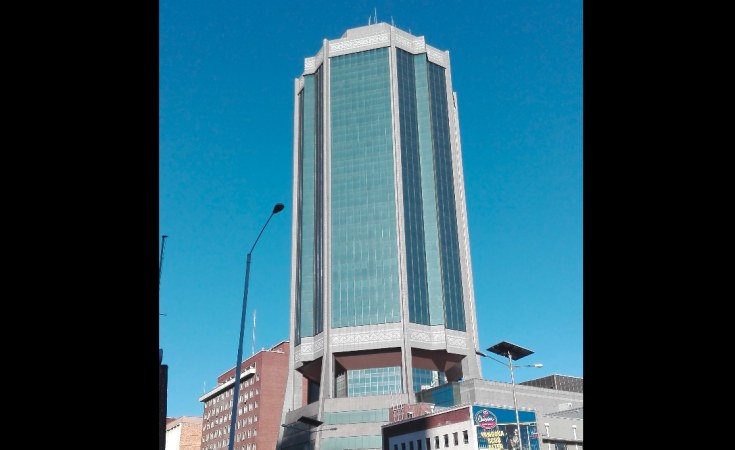The Reserve Bank of Zimbabwe (RBZ) has cut the policy rate to 20 percent from 130 percent previously as it bets on measures to stabilize the newly introduced Zimbabwe Gold (ZiG) currency.
The Central Bank has been pegging restrictive interest rates, peaking at 200 percent in 2022, in its quest to curb inflation and discourage the market from borrowing for currency speculation purposes.
The phased-out Zimbabwe dollar (ZWL) had lost over 65 percent of its value between January and March this year.
With the structured currency rollout, authorities are adamant that the exchange rate will stabilize and inflation will cool down riding on the new monetary policy frame.
"The Bank has recalibrated the Bank policy rate from 130% per annum to 20% per annum consistent with the new monetary policy framework," said RBZ Governor, Dr John Mushayavanhu in his maiden Monetary Policy Statement.
The ZiG- a structured currency, combines characteristics of a commodity backed currency whose value depends on the performance of the underlying assets consisting of a basket of minerals mainly gold as well as foreign currency reserves. It also has characteristics of a fiat currency which solely relies on Government regulations and Central Bank policies.
The ZiG currency will be fully backed by the central bank's reserves, which currently amount to US$100 million and US$185 million in gold.
The overnight accommodation interest rate has been set at 5 percent above the Bank policy rate and the Bank deposit facility interest rate at 7.5 percent below the Bank policy rate, thus giving the starting interest rate corridor of between 11 percent to 25 percent per annum.
"The Bank policy rate and the corresponding interest rate corridor will be reviewed by the Monetary Policy Committee (MPC) from time to time in line with inflation developments," said Mushayavanhu.
Minimum savings and time deposits interest rates on ZiG are set at 9 percent and 7.5 percent below the Bank deposit facility rate of 12.5 percent, respectively.
Minimum interest rates on FCA deposits remain unchanged at 1 percent and 2.5 percent for savings and time deposits, respectively.
Going forward, open market operations will be carried out to ensure that reserve money will always be fully backed by a corresponding composite basket of reserve assets comprising precious minerals (predominantly gold) and foreign currency balances.
"The Bank will continue with its strict liquidity management in order to mitigate against shocks that cause spikes in the exchange rate," he added.
The auction system has been replaced by a refined interbank foreign exchange market under a willing-buyer-willing-seller (WBWS) trading arrangement. Following this development, a transparent price discovery mechanism is now in place in the interbank market.
The Bank rate cut is expected to bring relief to businesses that were struggling to borrow at exorbitant interest rates.
Several companies have reported shelving expansion projects owing to the high cost of capital.
However, some analysts argue that the rate cut will not make much material change to the market as most companies were borrowing in a more stable US-dollar currency. Moreover, according to a majority of listed companies, USD currency now constitutes 80 percent of local transactions.


